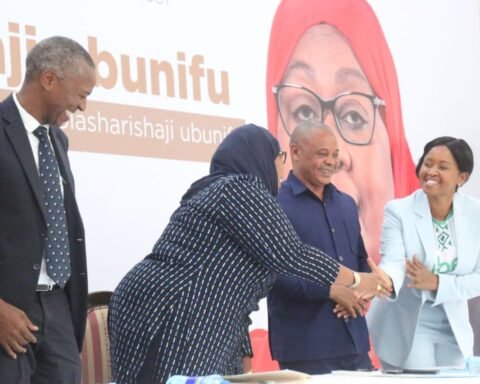After serving the people of Ruangwa for 15 years, Tanzania’s Prime Minister Kassim Majaliwa has officially announced that he will not seek re-election for his parliamentary seat in the upcoming 2025 general elections.
The announcement was made on July 2, 2025, during a private session with the district and regional political committees—closing a significant chapter in his political career with grace and humility.
Majaliwa, who first entered Parliament in 2010 and later rose to become Prime Minister under the leadership of President John Magufuli, told local leaders that the time had come to step aside and allow new leadership to emerge. He said the unity built over the years should now empower others who are passionate about development and community advancement.
“It is time for the solidarity we’ve nurtured to give way for other sons and daughters of Ruangwa to rise,” Majaliwa remarked, earning applause from longtime supporters.
During his tenure, Majaliwa oversaw improvements in infrastructure, education, healthcare, and the provision of clean water. He also played a vital role in the national agenda, including the historic shift of government operations to Dodoma, Tanzania’s capital city.
What surprised many was the timing of his announcement—it came on the very last day for submitting nomination forms for parliamentary aspirants. Until recently, Majaliwa had been expected to defend his seat, making the decision a deeply personal and symbolic gesture of leadership renewal.
Now, at least five aspiring candidates have declared their intentions to run for the Ruangwa seat. Majaliwa urged party leaders in the ruling Chama Cha Mapinduzi (CCM) to offer full support to all contestants during the internal selection process.
He also called on Ruangwa residents to attend campaign meetings and support the eventual nominees of the party, which is expected to field a presidential ticket led by President Samia Suluhu Hassan and her running mate. “When the time comes, let us turn out in large numbers, listen to policy discussions, and vote accordingly,” he said.
Also Read; Iran Demands Safety Before U.S. Talks Resume
Majaliwa’s decision mirrors a broader trend in African politics, where seasoned leaders are stepping aside to make room for younger generations. At 64, Majaliwa is still active, and political analysts suggest he may take on an advisory role within government or the party structure—mentoring rising leaders and shaping policy from behind the scenes.
Reactions from Ruangwa residents were mixed with gratitude and curiosity. “He brought roads, electricity, clinics, and peace,” said Halima, a local trader. “But now, we want a new leader who will listen to us and understand today’s challenges—especially for youth and farmers.”
Others believe his decision may inspire future leaders to emulate his servant-leadership model. “Majaliwa didn’t wait to be pushed out,” one local elder said. “He knew when to leave.”
As Tanzania gears up for its 2025 elections, the Prime Minister’s departure marks more than a political exit—it’s a testament to democratic maturity. A leader steps aside. A community moves forward. And a nation prepares for new voices to rise, building on the foundation laid by those who came before.







